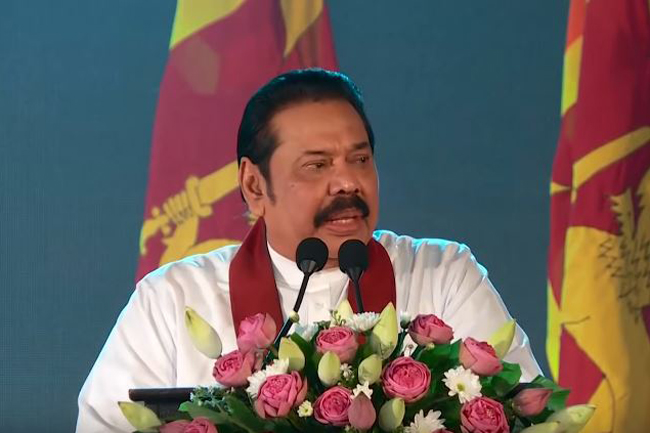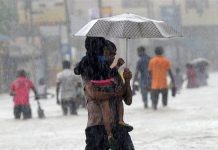Making a special statement in Parliament yesterday, Prime Minister Mahinda Rajapaksa said the support of the legislature was needed to stabilise the economy that suffered a setback due to unsettled bills by the previous regime.
He said relevant authorities had defaulted Rs.101 billion as recurrent expenditure and Rs.55 billion as capital expenditure to suppliers for assignments undertaken.
“All provisions of budget estimates approved for last year had been spent by the government which lasted till November 20, 2019. Therefore, the treasury was unable to expend money for most of the government’s expenses during the months of November and December. The expenditure incurred by special units including the Elections Commission (EC) for the presidential election held on November 16 last year stands at Rs.1,188 million. It has also been reported that there is a need for Rs.400 million in addition to provisions allocated to conduct this year’s elections by vote of account. Expenditure incurred by the Health Ministry to supply medicine and hospital services amount to a staggering Rs.25,696 million while the expenditure incurred by the Finance Ministry to pay banks for senior citizens is a whopping Rs.46,815 million. The expenditure incurred by the Agriculture Ministry to be paid to suppliers for fertiliser subsidy is Rs.23,949 million. The amount of unpaid bills for the services of the armed forces and public institutes depend on the treasury and other recurrent expenditure is Rs.5,490 million,” he said.
In addition, he said unpaid capital expenditure included Rs.18,449 million for highway constructors, Rs.6,862 million for school development constructors and Rs.3,114 million for suppliers who undertook Gamperaliya projects, Rs.2,242 million for provincial councils, local bodies and district secretariats, Rs.1,990 million for water supply drainage and Rs.558 million for contractors in the irrigation sector.
“The entire economy has crippled. Relevant companies are withdrawing from the importation and distribution of fertiliser. Despite these difficulties, State sector fertiliser companies are supplying stocks for paddy cultivation. The entire agriculture sector faces the danger of being downgraded due to lack of adequate fertiliser for other crops. Failure to supply medicine to hospitals including the cancer hospital has paralysed free healthcare. More than half out of 700 small and medium-sized rice mills have been closed and the remaining struggle to repay the bank loans obtained. More than 400 tea factories have been distorted and are facing a severe credit crunch. The exchange rate of a US Dollar has depreciated by Rs.50 from 2015 to 2019 but is not reflected in tea prices.
“Many businessmen being listed in the CRIB is another major problem. Meanwhile, Bank of Ceylon and People’s Bank have increased their non-recoverable loans on decisions taken by a few directors and executive officers while ignoring accepted procedures. That amount is Rs.72 billion. It is also reported that these loans were given to particular individuals. According to the Central Bank, nearly 20 out of 42 finance companies have faced constraints. Economic growth is less than three percent. This is the lowest growth rate recorded by a South Asian country. All manufacturing sectors have suffered a setback. However, we are committed to implementing a new fiscal policy to reduce the budget deficit to below four percent and public debt by 70 percent by 2025 as we mentioned in the presidential election manifesto.
“As the vote on account has not provided for the aforementioned expenditure, I propose this august assembly to approve an estimate with reciprocal of Rs.101 billion and capital provisions of Rs.55 billion. I propose this assembly to approve a reciprocal estimate of Rs.211 billion in addition to these provisions to account the expenditure of foreign debt projects. I also request to approve the amendment which is for increasing the credit limit from Rs.721 billion to Rs.1,078 billion,” he said.
















